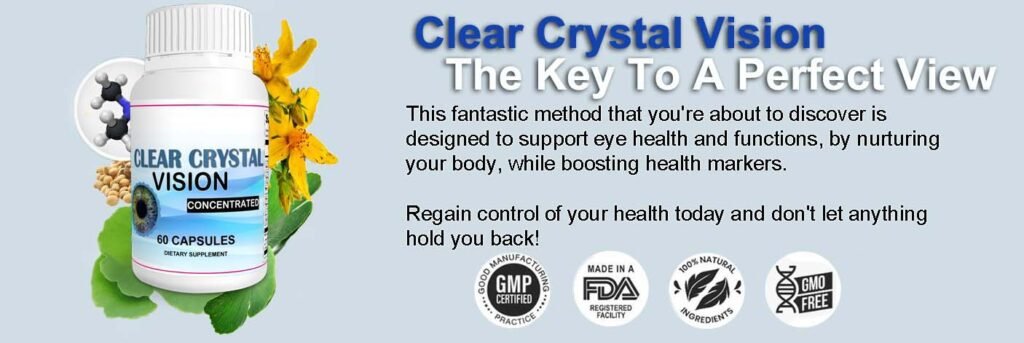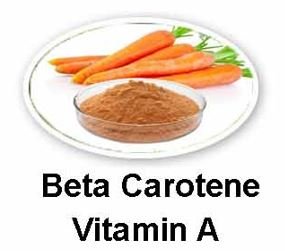Understanding Beta Carotene: What Is It and How Does It Work?
Beta carotene is a pigment found in various fruits and vegetables, particularly those that are orange, yellow, and green. As a member of the carotenoid family, beta carotene is most notably recognized for its role as a precursor to vitamin A, which is essential for maintaining healthy vision, immune function, and skin health. When consumed, the body converts beta carotene into retinol, the active form of vitamin A, thus playing a crucial role in vision and overall eye health.
The importance of beta carotene cannot be overstated, especially concerning eye health. Retinol is vital for the formation of rhodopsin, a light-sensitive protein in the retina that allows the eyes to see in low-light conditions. A deficiency in vitamin A can lead to severe vision problems, including night blindness and other vision-related issues. Therefore, adequate intake of beta carotene is essential to support the eyes’ natural functions and prevent potential deficiencies that could impair vision.
Incorporating foods rich in beta carotene into one’s diet is a practical approach to enhance overall eye health. Carrots are perhaps the most well-known source, but many other foods are also packed with this nutrient. Sweet potatoes, spinach, kale, and butternut squash are excellent alternatives that provide significant amounts of beta carotene. These foods contribute not only to improved vision but also to overall health, as they are often rich in other essential vitamins, minerals, and antioxidants.
In this manner, beta carotene serves as a vital component of a balanced diet, particularly for those concerned with maintaining crystal clear vision. Consuming an array of beta carotene-rich foods can contribute positively to one’s eye health and mitigate the risks associated with vision degradation.
How Beta Carotene Supports Eye Health and Vision
Beta carotene, a prominent member of the carotenoid family, plays a crucial role in maintaining optimal eye health and contributing significantly to vision. This antioxidant, abundantly found in colorful fruits and vegetables, is a precursor to vitamin A, which is essential for various visual processes. One of the primary ways beta carotene supports eye health is by protecting the eyes from oxidative stress, which can lead to cellular damage and degeneration. The retina is particularly susceptible to oxidative damage due to its exposure to light, making beta carotene’s antioxidant properties vital in combating this threat.
Moreover, beta carotene is integral to the proper functioning of rod and cone cells in the retina. Rod cells are responsible for vision in low-light conditions, while cone cells manage color vision and details in brighter light. An adequate supply of vitamin A, sourced from beta carotene, ensures that these cells operate efficiently. A deficiency can lead to night blindness, a condition characterized by difficulty seeing in dim light. For instance, research has shown that individuals with higher beta carotene intake demonstrated a lower risk of developing night blindness compared to those with inadequate levels.
Another significant aspect of beta carotene’s role in eye health is its potential impact on age-related macular degeneration (AMD). AMD is a leading cause of vision loss in older adults. Studies indicate that a diet rich in beta carotene and other antioxidants may reduce the risk of AMD by minimizing oxidative stress and inflammation in the retina. The Age-Related Eye Disease Study (AREDS) funded by the National Eye Institute highlighted that participants who adhered to a diet incorporating beta carotene, along with other vitamins and minerals, had a lower incidence of severe AMD.
In conclusion, beta carotene emerges as a vital nutrient in supporting eye health and ensuring clear vision. Through its antioxidant properties, promotion of cellular function in the retina, and preventive effects against conditions like macular degeneration and night blindness, beta carotene demonstrates its indispensable value in maintaining visual clarity throughout one’s life.

Incorporating Beta Carotene Into Your Diet for Optimal Vision
Incorporating beta carotene into your daily diet is a proactive approach to enhancing your vision and overall health. Beta carotene is a precursor to vitamin A, which plays a crucial role in maintaining good eyesight, particularly in low-light conditions. This powerful nutrient can be found abundantly in various colorful fruits and vegetables, making it easier to enjoy while helping to promote crystal clear vision.
To increase your intake of beta carotene, start by incorporating foods such as carrots, sweet potatoes, butternut squash, and leafy greens into your meals. These foods not only provide rich flavors but also deliver essential nutrients that contribute to eye health. For instance, a simple recipe for roasted sweet potatoes seasoned with cinnamon and olive oil makes for a delicious side dish while significantly boosting your beta carotene consumption.
Additionally, consider preparing smoothies using spinach, kale, and mango for a refreshing option that is both nutrient-dense and easy to enjoy. By blending these ingredients, you can create a visually appealing drink that melds taste and health benefits seamlessly. You may also want to experiment with colorful salads that combine dark leafy greens, shredded carrots, and sliced bell peppers to maximize your beta carotene and other antioxidants.
While focusing on beta carotene is important, it is equally vital to balance your diet with other vitamins and minerals that support eye health. Foods rich in omega-3 fatty acids, vitamin C, and zinc also play key roles in maintaining healthy vision. Regularly consuming a variety of fruits and vegetables, paired with healthy fats and lean protein, will help furnish your body with all the essential nutrients required for optimal eye function and overall well-being. By taking small steps to include these nutrient-rich foods in your daily routine, you can fortify your vision health effectively.
Limitations and Precautions: Understanding Beta Carotene Supplementation
While beta carotene supplementation may seem like a straightforward approach to enhance ocular health, it is essential to consider certain limitations and precautions. First and foremost, individuals, particularly smokers, have been identified as a high-risk group. Research indicates that smokers who take beta carotene supplements may experience an increased risk of lung cancer. As a result, it is prudent for this demographic to avoid isolating beta carotene in supplement form and instead focus on deriving their nutrients from whole food sources rich in carotenoids.
Moreover, other populations may face risks associated with beta carotene supplementation. For example, individuals suffering from certain health conditions such as hypothyroidism may have complications due to altered vitamin A metabolism. Additionally, some research suggests that excessive intake of beta carotene may lead to carotenodermia, a condition where the skin takes on a yellowish hue. This discoloration is typically harmless but can indicate an imbalance in nutrient intake, prompting individuals to reflect on their dietary habits.
Furthermore, it is vital to emphasize the importance of obtaining nutrients primarily through a balanced diet. Whole foods contain a complex array of vitamins, minerals, and phytonutrients that work synergistically to promote better health and support optimal vision. Relying predominantly on supplements could lead to deficiencies in other essential nutrients that are sometimes overlooked. Therefore, for most people, including foods such as carrots, sweet potatoes, and leafy greens in their diet offers a more comprehensive strategy to enhance health benefits without the associated risks of supplementation.
Before making any significant alterations to one’s dietary regime, it is prudent to consult with healthcare professionals. They can provide tailored advice based on individual health profiles, dietary needs, and potential interactions with medications, ensuring that choices made support overall well-being.

